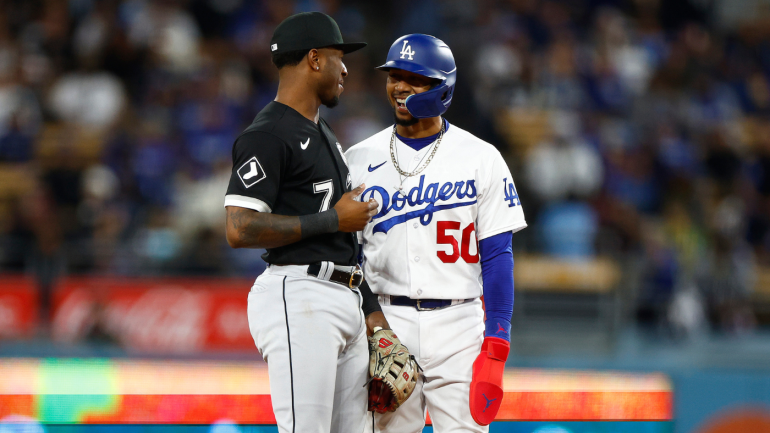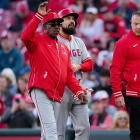
The Institute for Diversity and Ethics in Sport at Central Florida issued its annual report card for Major League Baseball's diversity hiring practices on Thursday. For the second consecutive season, TIDES reported a record-low percentage of Black players on MLB Opening Day rosters, according to the Associated Press.
Per TIDES' research, just 6.2% of players on Opening Day rosters were Black. Last season, that percentage was 7.2%. For context, Black players represented 18% of the league when the study began, back in 1991.
TIDES' findings come months after the Houston Astros and Philadelphia Phillies played the first World Series since 1950 that did not feature a single Black player born in the United States. (Jackie Robinson integrated MLB in 1947.) Dusty Baker, the winning manager last October who remains one of two Black skippers, said the following at the time: "What hurts is that I don't know how much hope that it gives some of the young African-American kids. Because when I was their age, I had a bunch of guys, [Willie] Mays, [Hank] Aaron, Frank Robinson, Tommy Davis -- my hero -- Maury Wills, all these guys. We need to do something before we lose them."
Baker pointed out that the tide could be turning based on recent draft results. To wit, four of the top five selections in last summer's event were U.S.-born Black players: outfielder Druw Jones, right-hander Kumar Rocker, infielder Termarr Johnson, and outfielder Elijah Green.
"There is help on the way," Baker told reporters. "You can tell by the number of African-American No. 1 draft choices. The academies are producing players. So hopefully in the near future we won't have to talk about this anymore or even be in this situation."
TIDES director Richard Lapchick, for his part, seemed to agree with Baker's assessment. He told the AP that he believed the percentage of Black players could tick up in the coming years, if not to the 1991 levels, thanks in part to programs MLB has created to improve Black youth participation in baseball. "I think the trend might continue another year or two until all the programs they've put in place have that type of impact," Lapchick said.
Overall, TIDES gave MLB a B for racial hiring and a C for gender hiring.






















